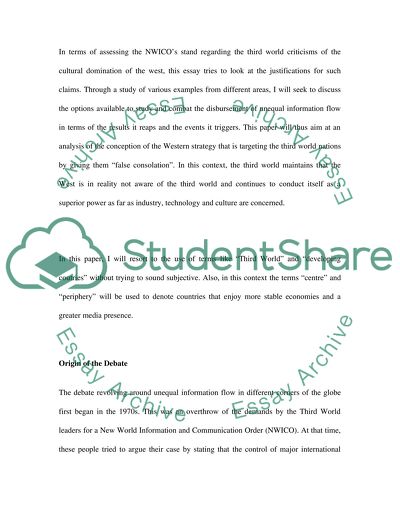Cite this document
(“NWICO An International Debate on Culture Essay Example | Topics and Well Written Essays - 2000 words”, n.d.)
Retrieved from https://studentshare.org/miscellaneous/1529530-nwico-an-international-debate-on-culture
Retrieved from https://studentshare.org/miscellaneous/1529530-nwico-an-international-debate-on-culture
(NWICO An International Debate on Culture Essay Example | Topics and Well Written Essays - 2000 Words)
https://studentshare.org/miscellaneous/1529530-nwico-an-international-debate-on-culture.
https://studentshare.org/miscellaneous/1529530-nwico-an-international-debate-on-culture.
“NWICO An International Debate on Culture Essay Example | Topics and Well Written Essays - 2000 Words”, n.d. https://studentshare.org/miscellaneous/1529530-nwico-an-international-debate-on-culture.


